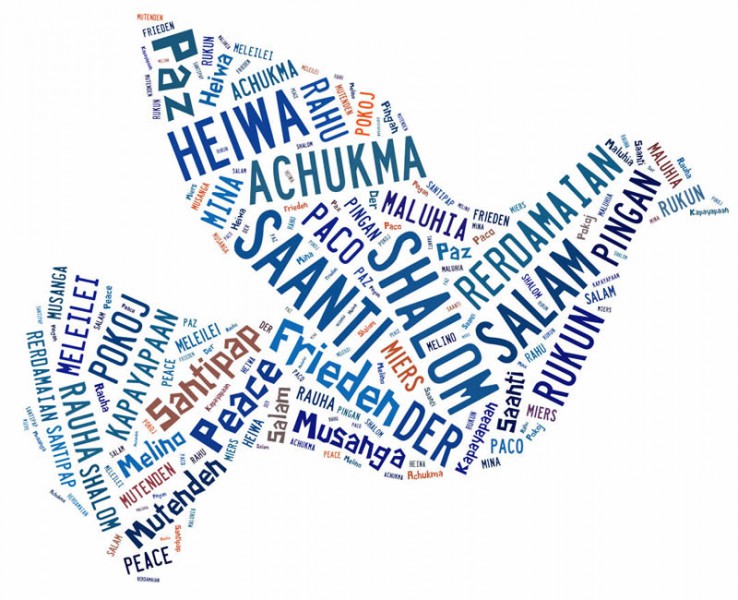Partnerships for Peace
 Partnerships for Peace – Dignity for All
Partnerships for Peace – Dignity for All
21 September 2015
“If, for one day, we can live in a world without aggression and hostility, we can imagine how much more is possible”
Days ahead of this year’s International Day of Peace observed across the world on 21 September, the UN Secretary General had called for Peace and for laying down of arms for a 24 hours cease-fire, saying “Let’s make this International Day of Peace a day without violence, and a day of forgiveness. If, for one day, we can live in a world without aggression and hostility, we can imagine how much more is possible.”
In this nuclear age, lasting Peace on earth is of primary importance for the preservation of human civilization and the survival of mankind; for the material well-being, development and progress of countries, and for the full implementation of the rights and fundamental human freedoms. Expressing the will and the aspirations of all to eradicate war from the life of mankind and, above all, to avert a world-wide nuclear catastrophe, the UN General Assembly had adopted a Declaration on the Rights of People to Peace about three decades ago.
The declaration adopted in 1984 holds that the peoples of our planet have a sacred right to peace and that it is thefundamental obligation and sacred duty of each state to preserve and promote the implementation of this right to peace. It also emphasized that the policies of States be directed towards the elimination of the threat of war, particularly nuclear war, the renunciation of the use of force in international relations and the settlement of international disputes by peaceful means to ensure the right of peoples to peace.
Though, awareness and campaigns for peace and the culture of peace have increased during the 30 plus years after the adoption of the Right to Peace, we have a long way to go, because all that is happening around us is evidence enough that all is not well with the human rights and dignity of the average human being all over the world.
There are many stories to tell—stories soaked with violence, the violation of human dignity and the destruction of creation. Many continue to reel from the impact of civil war; and ethnic and religious animosity has marred the façade of our nations leaving ugly scars. Thousands are dead, displaced, homeless, refugees within their own homeland and abroad. The refugee and migrant crisis speaks volumes of the plight of ordinary citizens who are running away from armed conflict, torture and injustice. Women and children often bear the brunt of such conflicts—many women are abused, trafficked, killed; children are separated from their parents, orphaned, recruited as soldiers, abused. Thousands of children die each day from inadequate nutrition as a result of political and economic decisions that favor few. Large scale indiscriminate violence has become the rule rather than the exception of the day. The world looks on helplessly as each day of violence and injustice seamlessly blends into the other.
Peace, as said earlier, is in serious deficit.
The theme of this year’s commemoration is “Partnerships for Peace – Dignity for All,” which aims to highlight the importance of all segments of society to work together to strive for peace. It is a call to churches to give our best to the promotion of peace and the preservation of human rights and dignity in our own contexts. United Nations has recognized Faith based organizations as one of the thousands of partnerships that support it in achieving its goals.
Let us rise to our responsibility and calling to establish Peace with Justice and Security in the household of God. Let justice roll down like waters, and righteousness like an ever-flowing stream. Amos 5:24










